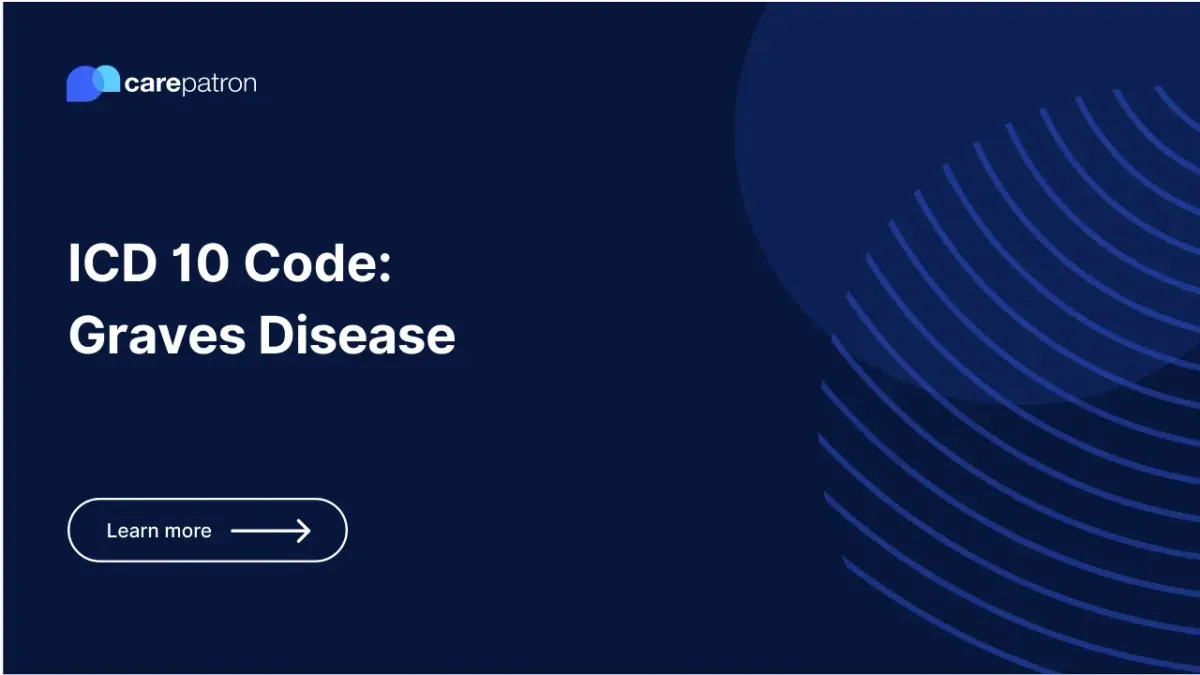
Graves Disease ICD-10-CM Codes | 2023
An all-inclusive guide for the Graves Disease ICD-10-CM codes for 2023. Explore critical codes, clinical data, billability, code synonyms, and FAQs.
Use Code
Commonly asked questions
The exact cause of Graves' disease is unknown, but it's believed to involve a combination of genetic and environmental factors. Some triggers could include stress, smoking, radiation to the neck, medications, and viral infections.
Graves' disease can lead to heart problems, weak and brittle bones, severe thyrotoxicosis known as thyroid storm, and even pregnancy complications if left untreated. However, with proper treatment, most people live healthy lives.
Graves' disease doesn't usually go away on its own. Most patients need treatment to manage the symptoms and control the overactive thyroid gland.
EHR and practice management software
Get started for free
*No credit card required
Free
$0/usd
Unlimited clients
Telehealth
1GB of storage
Client portal text
Automated billing and online payments
